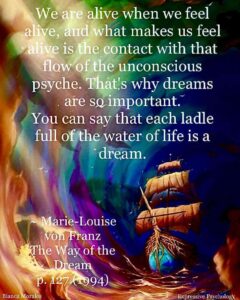
I first heard the term loving wastefully in a speech by John Spong, a retired Episcopal bishop who sees this kind of love as an attribute of God. Like Jesus, this spiritual pioneer who has long been an outspoken proponent of feminism, gay rights, and racial equality has severely upset the applecarts of many traditional believers by actually practicing what he preaches. So much so, that he has received 16 death threats: all from Christians. What’s wrong with this picture?
I know; I’m preaching to the choir in this blog. So instead of ranting on about something we all agree on, I’ll try to add something new to the mix. What we fail to realize when we raise incredulous eyebrows in a not-so-subtle display of self-righteousness is that there’s nothing really new or unusual about the illogic of people believing in love and living with hate. In fact, if we stop to think about it, most of us know and regret times we have acted in hateful ways and felt secretly justified in it.
The reason for this is psychological ignorance, or unconsciousness. We humans simply can’t see ourselves objectively in the same way we can see others. In our well-intentioned desire to transcend our limitations and become better people, we gravitate toward groups, activities and ideals which we hope will inspire and heal us. We try to make sacrifices without complaining; we try to give without expecting anything back. We pray, study, learn, theorize and engage in spiritual practices in the hope of becoming mature spirit people. Meanwhile, we keep on hating and fearing ourselves and projecting our hatred and fear onto others.
Why? Because thinking, idealizing and learning can only take us so far. What we forget, what we don’t even want to know because the knowledge makes us squirm, is that we have an unknown shadow side composed of uncomfortable instinctual needs, unhealed wounds, basic assumptions and powerful emotions that we haven’t a clue how to restrain. And these very real parts of ourselves are absolutely brilliant at finding sly ways to escape our ego’s carefully constructed boundaries without our knowledge or consent.
Some years ago a few women and I founded an organization to create programs we hoped would make a difference in the lives of women. As we worked intimately together over many years, we learned to trust one another well enough to risk taking off our oh so civilized masks. As our egos felt safer, our despised and carefully hidden shadows occasionally snuck out and stirred up trouble. Being the exceedingly well-intentioned women we were, we deliberately faced and dealt with our conflicts in carefully-crafted sessions of active listening and truth-telling.
After years of mental striving which had kept me distanced from my true self and others, trying to recognize and express uncomfortable and uncontrollable emotions in this sacred circle with as much patience, kindness and love as I could muster was one of the most profoundly healing and life-changing experiences of my adult life. In trying to make a difference in the world we also made a difference in ourselves. We grew more conscious of our shadows.
It’s not just thinking noble thoughts in our heads that connects us with what’s Holy: it’s also daring to feel, face and expose the secrets of our inner Other. This is what creates a loving heart, our threshold to the Sacred. As Gregg Braden reminds us, the feeling is the prayer.

A Lesson on Aging
I’m so happy to be back in the mountains. I love the weather, the trees, the birds, the rushing creek, the flowering bushes. The beauty.





0 Responses
Wow Jeanie, you have captured one of the greatest challenges in our human existence in such straight forward, understandable language. It is so incredibly difficult to even catch a glimpse of our shadow side.
And too, thank you for linking us to the wisdom of Greg Braden.
Much love,
Sally
Thanks, Sally. Owning our shadows truly is one of the greatest challenges of being human. And we simply cannot claim psychological maturity until we have made considerable headway in this noble endeavor. That’s why dreams are so valuable: because they give us glimpses of our shadows in the unlikeable characters that show up. Even then, we’d rather believe they are not part of us! The poor ego is so terrified of the truth.
Love,
Jeanie
wonderfully put.
Thanks, Joan. Jeanie